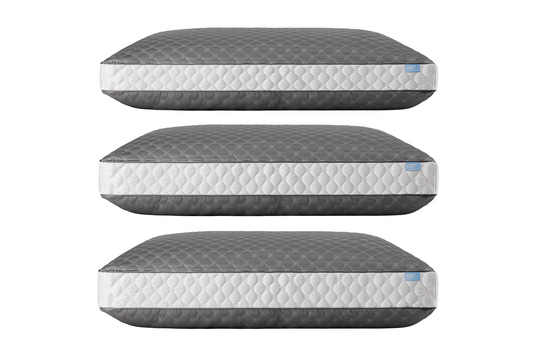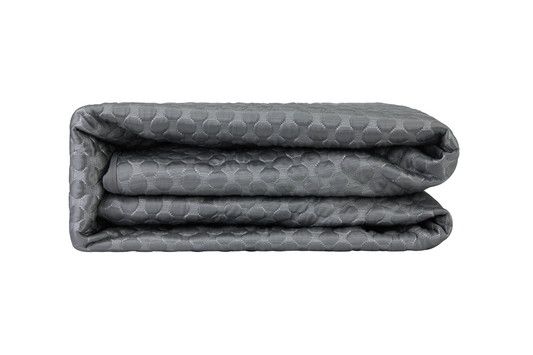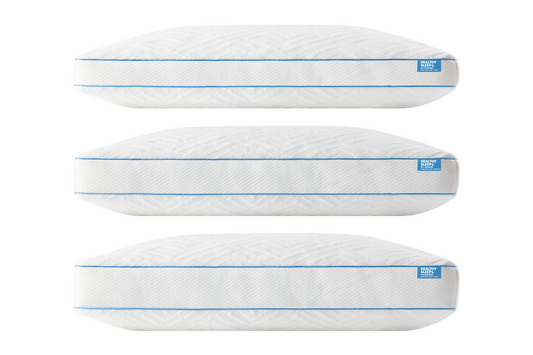
We all know that regular exercise is essential for maintaining physical health and well-being. It helps us stay fit, boosts our mood, and supports overall vitality. But did you know that exercise can also play a significant role in the quality of your sleep? In this blog, we will explore the fascinating connection between exercise and sleep and how incorporating physical activity into your daily routine can lead to more restful nights and brighter days.
The Science of Sleep
Before delving into the impact of exercise on sleep, it's important to understand the basics of sleep itself. Sleep is a complex biological process that consists of several stages, including light sleep, deep sleep, and REM (rapid eye movement) sleep. Each stage serves a unique purpose in restoring and rejuvenating both the body and the mind. The key to a good night's sleep is achieving a balance between these stages and maintaining a consistent sleep-wake cycle.
How Exercise Influences Sleep
- Improved Sleep Duration: Studies have consistently shown that individuals who engage in regular physical activity tend to sleep longer and experience fewer disruptions during the night. Exercise can help you fall asleep faster and stay asleep for a more extended period, promoting a deeper and more restorative sleep.
- Stress Reduction: Exercise is a powerful stress reliever. It helps reduce the production of stress hormones like cortisol, which can contribute to sleep disturbances. Lower stress levels make it easier to relax and fall asleep peacefully.
- Regulation of Circadian Rhythm: Our bodies have an internal clock known as the circadian rhythm, which helps regulate sleep-wake cycles. Regular exercise can help synchronize this internal clock, making it easier to fall asleep at night and wake up refreshed in the morning.
- Enhanced Mood and Mental Well-being: Exercise has been linked to improved mood and mental health. People who engage in physical activity often report reduced symptoms of anxiety and depression, both of which can interfere with sleep quality.
- Increased Body Temperature: Exercise increases core body temperature, and as your body cools down after a workout, it can trigger a natural drop in temperature that promotes sleepiness.
- Weight Management: Maintaining a healthy weight through regular exercise can reduce the risk of sleep apnea and other sleep-related disorders that can disrupt sleep.
Practical Tips for Using Exercise to Improve Sleep
- Consistency Is Key: Aim for at least 150 minutes of moderate-intensity aerobic exercise or 75 minutes of vigorous-intensity aerobic exercise per week. Consistency in your exercise routine can lead to more consistent sleep patterns.
- Timing Matters: While any physical activity is better than none, exercising too close to bedtime may have a stimulating effect on some individuals. Try to finish your workout at least a few hours before bedtime.
- Find What Works for You: Not everyone enjoys the same type of exercise. Choose activities that you enjoy and can maintain in the long term, whether it's running, swimming, yoga, or dancing.
- Create a Relaxing Pre-Bedtime Routine: Incorporate relaxation techniques such as deep breathing, stretching, or gentle yoga into your pre-sleep routine to help your body wind down after exercise.
- Listen to Your Body: Pay attention to how exercise affects your sleep. If you find that vigorous workouts late in the evening disrupt your sleep, consider shifting your exercise routine to earlier in the day.
Exercise isn't just about building muscles and staying in shape; it's also a powerful tool for improving sleep quality and overall well-being. By incorporating regular physical activity into your life, you can reap the benefits of better sleep, reduced stress, and enhanced mood. So, lace up those sneakers, hit the gym, or take a brisk walk – your body and mind will thank you with a deeper, more refreshing night's sleep. Sweet dreams!




